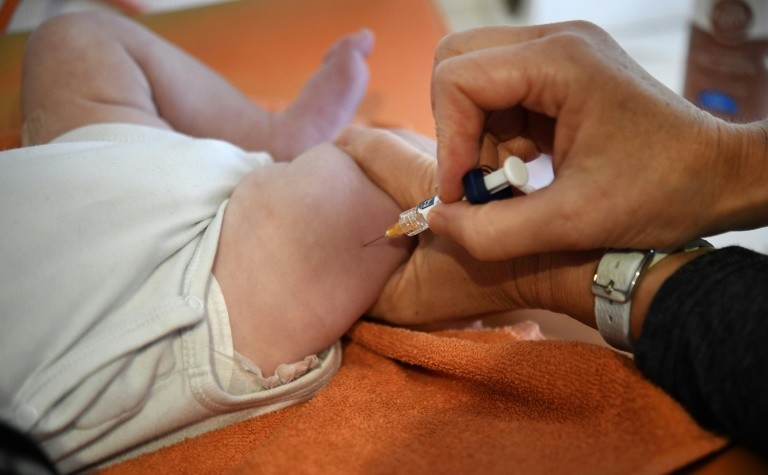Here are the 11 Compulsory Vaccines Voted by the National Assembly

Increase from three to eleven the number of compulsory vaccines for children born from 1st January, 2018: the National Assembly voted this measure for “public health”.
Increase from three to eleven the number of compulsory vaccines for children born from the 1st January, 2018 : the National Assembly voted Friday this measure for “public health”, according to the government, after heated debate and a moment of emotion.
What are the 11 vaccines concerned?
- Whooping cough
- Measles Mumps Rubella
- Hepatitis B
- Haemophilus influenzae bacteria (source of meningitis)
- Pneumococcal
- Meningococcal C
- Diphtheria
- Tetanus
- Poliomyelitis
These 11 vaccines will be mandatory for children under two years, and essential for admission to community facilities (nursery, school …), as provided by an article in the draft budget of the Secu.
Resistant parents will not be punished for lack of vaccination.
Under the applause of the majority, the provision was adopted at first reading by 63 votes in favor, and 3 against (including two elected LREM). Nine deputies abstained on the left of the left.
As a culmination of the debates, MP Michèle Peyron (La République en marche) commented:
Thirty years ago, I wanted to wait before vaccination too and I lost a child, not vaccinated
Her intervention caused emotion on all the benches, leading to a suspension of sitting for a few minutes, at the request of the Minister of Health.
Previously, Agnès Buzyn defended vaccination, “the drug that saved the most lives in the world”. However, for twenty years according to her, “we have lowered the guard” and “forgotten what were these diseases” have resurfaced, such as measles that has “a dozen deaths in the past four years.”
“The consultation took place” in 2016 under the aegis of the previous government and “it is time to act,” said the minister, herself a professor of medicine like many parliamentarians.
Adjuvants to increase the effectiveness of vaccines, including aluminum, “pose no danger,” she assured detractors.
And “all those who advocate freedom of vaccination play the stowaway” by taking advantage of the vaccination of others, she said, while anti-vaccines have multiplied petitions since the government announcement in July and “assailed” of e-mails deputies, as reported by some.

“Surrealist debate in the country of Pasteur”
Several LREM deputies have come to the front to promote “one of the greatest progress made by humanity” or the principle that “to vaccinate is to protect one’s child, it is also to protect others”. For Brahim Hammouche (MoDem) too, the debate on the need for vaccines “in the country of Descartes and Pasteur may seem surreal”.
Right, Socialists and Constructives have supported the extension of the compulsory vaccination, some insisting however on the need to accompany it with pedagogy in the face of distrust.
If the French remain largely favorable, 75%, to vaccination in general, this rate has eroded over the years.
Rather isolated in LREM, Blandine Brocard has unsuccessfully requested the deletion of the article, lamenting that “it is not forced but no convincing” and asking within “a few months” to “restore confidence”.
A position “personal and politically marginal, defended aggressively and unfounded”, has responded via a statement his group president Richard Ferrand.
For their part, communists and les Insoumis, “advocates of vaccination” in general, have questioned including a “rush” of the government to legislate in this area. They also advocated a “public vaccine production center”, instead of private pharmaceutical laboratories.
Referring to a non-public visit of Edward Philip Sanofi, the president of Debout la France and MP for the Essonne Nicolas Dupont-Aignan asked vehemently: “Is it political authority that governs or multinational? ”
The minister, who has the support of some forty scientific societies and medical unions, accused him of “flirting with defamation” and live “in the era of post-truth”.
The compulsory vaccines will be covered 65% by the Health Insurance and 35% by the complementary insurances (except the MMR supported 100% by the Health Insurance).
According to an amendment of the assemlbly, an evaluation will be carried out each year.
Enjoyed this? Get the week’s top France stories
One email every Sunday. Unsubscribe anytime.


